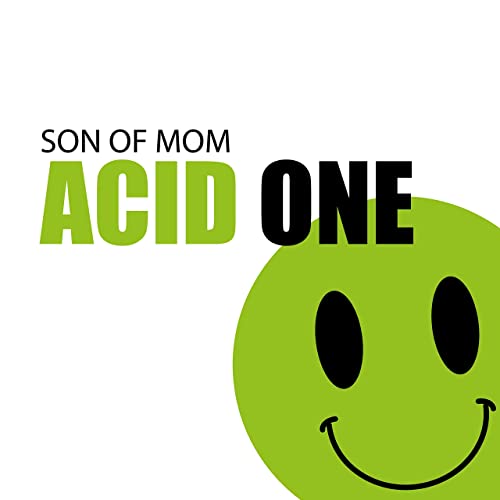

The bank usually pays a small amount of interest on the deposits made through these bank accounts. Demand deposits and term deposits refer to two different types of deposit accounts at a financial institution. Term deposits, also known as time deposits, are investment deposits. Demand deposits and term deposits refer to two different types of deposit accounts available at a bank or similar financial institution, such as a credit union. Demand deposits and term deposits differ in terms of accessibility or liquidity, and in the amount of interest that can be earned on the deposited funds. Term deposits can help you grow your money faster with a higher interest rate than a savings account at the bank or post office.
- Additionally there would be a penalty on pre-mature withdrawal of Term Deposit.
- Thus money acts as intermediary which solves barter’s problem of lack of double coincidence of wants.
- A current Account provides you with high liquidity, enabling you to withdraw money anytime.
The use of such website is also subject to the terms of use and other terms and guidelines, if any, contained within each such website. The accident cover will only be paid in scenarios where death occurs due to accident. Term Insurance plan bought online directly from Max Life Insurance has no commissions involved. Accidental death benefit is available in call variants except for Single premium variant. Due to system constraints, employee is requested to select 5 Lakh and above income which can be changed to actual amount on the information page. • Several maturities allow the investors to stagger the end-dates and create an ‘investment ladder’.
So, a short-term fixed deposit leads to a shorter lock-in period of your money as compared to a long-term fixed deposit. The investor must understand that when buying or investing in the term deposit, it is possible to withdraw funds only after the end of the term. In a few cases, the account holder may allow an investor for an early termination or a withdrawal if given notice several days prior.
NRIs FD – This type of FD is offered only to NRIs (Non-Resident Indians), OCIs , and PIOs with NRO (Non-Resident Ordinary) accounts to promote investment domestically. Banks pay a higher interest rate to attract depositors from overseas, and the maturity payment gets credited to the bank account through NEFT/RTGS. This is a type of demand deposit account or DDA which holds the funds for a long duration and has a minimum required balance so almost everyone can open a savings account.
Types of Deposits accounts in India
For example, when a weaver gives cloth to the farmer in return for getting wheat from the farmer, this is called barter exchange. Similarly, the farmer can get other goods of his requirements like shoes, cow, plough, spade, etc. by giving his surplus wheat difference between demand deposit and time deposit . Thus system of barter exchange fulfils to some extent the requirement of both the parties involved in exchange. However as the transactions increased, inconveniences and difficulties of barter exchange also increased involving rising trading costs.

Demand deposits provide the money consumers need for purchasing daily expenses, where funds can be withdrawn at any time from the depository institution. The customer information collected from the customers shall not be used for cross selling of services or products by the Bank, their subsidiaries and affiliates. If the Bank proposes to use such information, it should be strictly with the consent of the accountholder. Operation of Joint Account – The Joint Account opened by more than one individual can be operated by single individual or by more than one individual jointly.
General Insurance
The account opening will be done in the presence of 2 witnesses one of whom is known to the depositor and the other being a Bank official. In the case of visually challenged customer the account will be opened under joint operation mandate with a customer who is not visually challenged. The Bank will explain the need for proper care and safe keeping of the passbook etc. given to the account holder. The Bank official shall explain the terms and conditions governing the account to the depositor.
What are the two types of demand deposit?
- Checking account. A checking account is one of the most common types of demand deposits.
- Savings account. A savings account is for demand deposits held at a slightly longer duration compared to the short-term use of the checking account.
- Money market account.
In return, the consumer gets a guaranteed rate of interest for the term selected. This way, the consumer is aware of when can they get their invested money back. Term deposits come with an array of benefits and, therefore, are the ‘most popular savings product’. Individuals who have an active bank account can typically open a fixed deposit either online or in person at a bank branch. Find the option to open a recurring deposit account, such as under the “investment” or “savings” section.
Premium does not include amount paid for riders and is excluding taxes, cesses and levies. Upon Policyholder’s selection of Return of Premium variant this product shall be a Non-Linked Non-Participating Individual Life Insurance Savings Plan. Option to receive all premiums paid back, at a specified point in the term of the policy .
Those term deposits which are held for periods of 6 months and less are called Short Term Deposits or Short Deposits. Minimum period of fixed deposit is 7 days and maximum period for which a bank can accept a deposit presently is 10 years. Cheque book facility is provided to each current account holder and bank undertakes to honour all cheques drawn correctly so long as there is sufficient balance to the credit of the account.
Savings Accounts
The discount is applicable if you are a salaried employee with a corporate. During policy issuance, Max Life may call for proof of employment if required. In case proposer when asked is not able to prove the employment part, discount offer will be discontinued and additional premium as applicable will have to be paid for processing of the case. Input the desired deposit amount and select the desired tenure and type of recurring deposit account.
How are demand deposits different from time deposits?
Unlike demand deposit accounts, which allow you to take money out at any time, time deposit accounts, also called term deposits, require you to deposit your money for a specific length of time.
A demand deposit could be accessed at any time and withdraw any amount of funds without prior notice given to the bank. Fixed Deposit is a saving account which cannot be withdrawn until the maturity date. Generally, banks only give you a debit card while opening a Demand deposit account. You will need to apply for a credit card separately, depending on your credibility. Demand deposits are payable on demand whereas time deposits are payable on expiry of specified period. Demand deposits do not carry any interest but time deposits carry a fixed rate of interest.
Savings Bank Account
The higher interest rates of FD and RD are because access to money is limited for the timespan of the term deposit. There are several different types of fixed deposit accounts that individuals can choose from, depending on their needs and financial goals. Each of these options may have different features, benefits, and requirements, so it is important to carefully compare them to find the one that best meets your needs. This policy document on deposits outlines the guiding principles in respect of formulation of various deposit products offered by the Bank and terms and conditions governing the conduct of the account. It is expected that this document will impart greater transparency in dealing with the individual customers and create awareness among customers of their rights. The ultimate objective is that the customer will get services they are rightfully entitled to receive without demand..
The material and information contained herein is for general information purposes only. Consult a professional before relying on the information to make any legal, financial or business decisions. Khatabook will not be liable for any false, inaccurate or incomplete information present on the website. Demand Deposit is the amount deposited by you when you wish and accessible to you at any time, meaning you can withdraw the funds at any time as the bank levies no charges on such deposits. Current Accounts or Saving Accounts are common examples of Demand deposits.
Such limits can be maintained yearly, quarterly, or even monthly. Money as standard of deferred payments helps to solve the barter problem of lack of standard of deferred payment. Again it helps to make contracts which involve future payments. Money, thus, acts as common medium of exchange, a common measure of value, as stamlard of deferred payments and a store of value. Another Function ‘Liquidity of Money’ is added these days.
Savings Account
Banks also may grant overdraft / loan against the security of their fixed deposits to meet emergent liquidity requirements of the customers. The interest on such facility will be 1% to 2% higher than the interest rate on the fixed deposit. Most banks provide every savings bank account holder a passbook. This passbook is regularly updated with information maintained by the bank in the customer’s ledger account in the form of chronological order of Debit transactions, Credit transactions, and Credit balances.
The more money is kept as demand deposits in a bank, and the more money is required to be set aside for reserves. When the demand Deposits are far more than the prescribed limit of bank reserves, the difference between the money held by the bank and the money kept in bank reserves is known as excess reserves. It helps contribute to the creation of the money process. They hold up money balance thinking that income from non-monetary assets like bond will be low and so the cost of money holding will also be low. Thus speculative demand for money becomes very high so much so that when rate of interest declines to minimum, say 3% as shown in Fig., speculative demand for money becomes infinite .
Describe alternative measures of money supply as used by RBI in India. It is difficult for the people to store wealth or generalise purchasing power for future use in the form of goods like cattle, wheat, potatoes, etc. Holding of stocks of such goods involve costly storage and deterioration. Even if buyer and seller of each other commodity happen to meet, the problem arises in what proportion the two goods are to be exchanged.
How are demand deposits different from time deposits?
Unlike demand deposit accounts, which allow you to take money out at any time, time deposit accounts, also called term deposits, require you to deposit your money for a specific length of time.




















